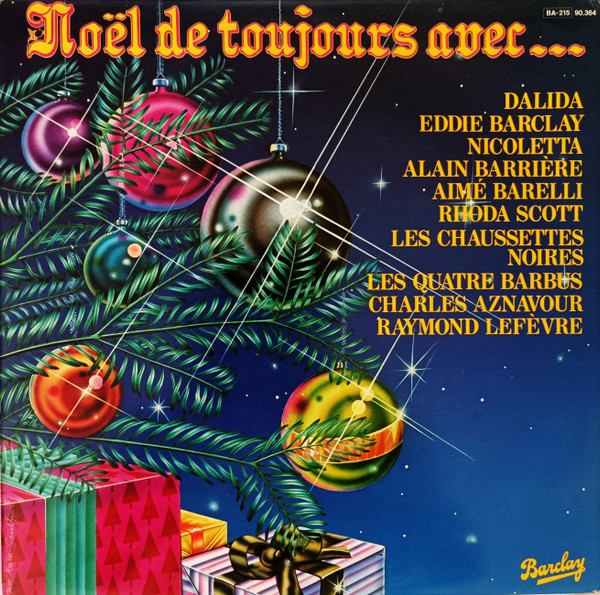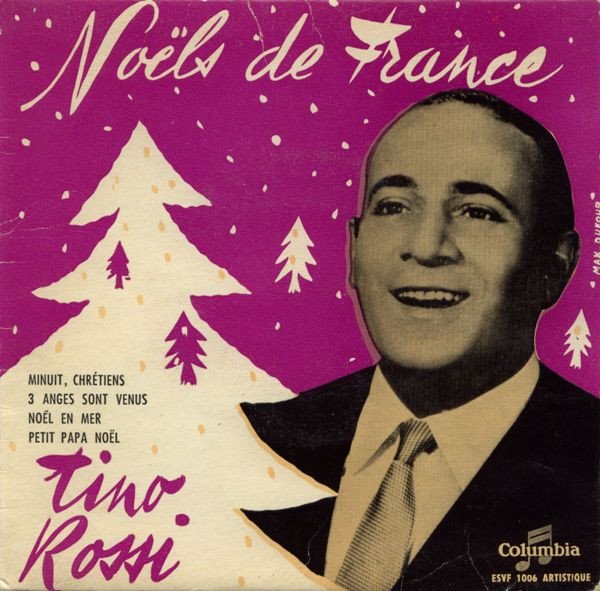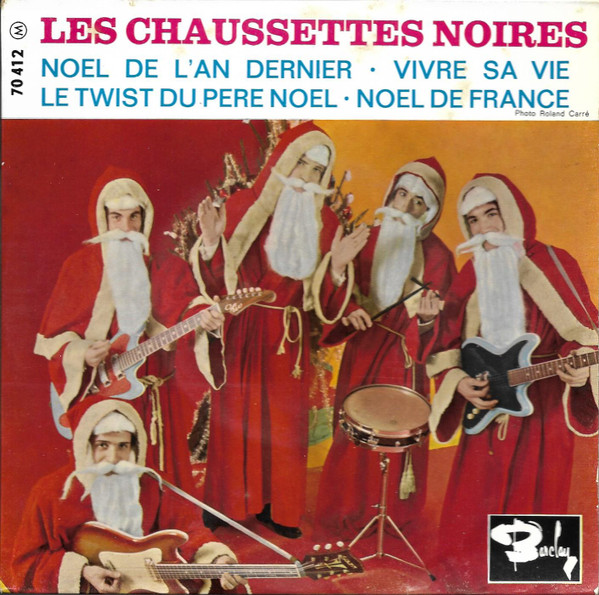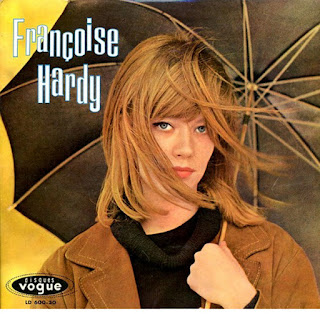Le twist du Père Noël
There had been other Christmas records in the intervening years. Some of them were original French songs, some were revivals of old festive favourites, some - like Line Renaud's 1956 winner "J'ai vu Maman embrasser le Père Noël", were covers of American hits (in her case, Jimmy Boyd's "I Saw Mommy Kissing Santa Claus". There had been revivals of Rossi's finest hour by Eddie Constantine (1956), by Yvette Giraud (1959) and by exotica queen Dalida (1960); there had even been covers of Bing Crosby's hardy perennial, reworked into French as "Noël blanc" by the likes of Paulette Rollin (1954), Patrice et Mario (1958) and - her again - Dalida (1960). However, enjoyable as all of these were, none of them even remotely threatened to knock Tino Rossi off his throne as the king of Christmas - and none of them were any use to twisters either.
What was surprising was that to all intents and purposes, the record was a complete flop. Admittedly, Anthony had two big selling EPs on the market at the time, turbo-charged by covers of Chubby Checker's "Let's Twist Again" (in English) and Ray Charles' "Hit The Road, Jack!" ("Fick' le camp Jack"), but there were only so many records that his fans could afford to buy. Still, he was one of the biggest selling stars of the era and a consistent hit-maker for two years, so presumably his label, Columbia, had high hopes for the record. Yet it failed to catch fire and is today one of the hardest of Anthony's EPs to find. For the reasons why, we need to look across town to the rival Barclay label.Les Chaussettes Noires - the first real rock 'n' roll band that France had produced - had enjoyed a very good year. Since scoring a hit with their very first release (a cover of Joe Jones' "You Talk Too Much" titled "Tu parles trop") they had unleashed three further EPs, enjoying tremendous sales across the course of the year to establish themselves - and in particular, frontman Eddy Mitchell - alongside Johnny Hallyday as the country's most popular rock 'n' rollers. What better way to finish the year, thought label boss Eddie Barclay, than with a Christmas release? Even better, how about one that also tapped into the twisting sounds that were now sweeping the country? And so the band set to work, with the results popping onto the market in November.
Perhaps with one eye on potential post-Christmas sales, the label only put three Christmas songs onto the EP, with the fourth "Vivre sa vie" being a cover of Cliff Richard and the Shadows' "Gee Whizz It's You". The other three were all sufficiently festive to make up for it, with some of the country's finest songsmiths providing the band with some top drawer material. "Noël en France", composed by Georges Garvarentz with lyrics from Jacques Plante, was perhaps the least memorable of the three but the other two were solid gold classics.
Any Scots living in France would have found something naggingly familiar in the tune of "Noël de l'an dernier", adapted as it was from from the classic Hogmanay favourite "Auld Lang Syne", although surely it had never been performed like this. A solid rocking beat underpinned the band's arrangement, with Mitchell delivering a custom-built lyric from Jean-Paul Vignon in suitably emphatic fashion. An instant radio favourite, the song also lit up a thousand teenage parties and helped the record to power up the charts, leaving Richard Anthony's efort in the starting blocks. And yet....
The band would stick with the twist for their next few releases before reverting back to their rock 'n' roll roots later in 1962. Military service would subsequently sap the band of their strength and unity and late in 1963 Mitchell would depart for solo career. The band soldiered on for another year but it was never the same and by the end of 1964 it was all over. Eddy Mitchell maintained a high profile throughout the sixties before fading away and then returning, bigger than ever, in 1974. He remains one of the country's most prominent vocalists and, with the passing of all of his best-known rivals, is now the last man standing of the French rock 'n' roll revolution. And his - or rather the band's - Christmas EP remains a much loved favourite of the country's rock 'n' roll and yé-yé generations.






Comments
Post a Comment